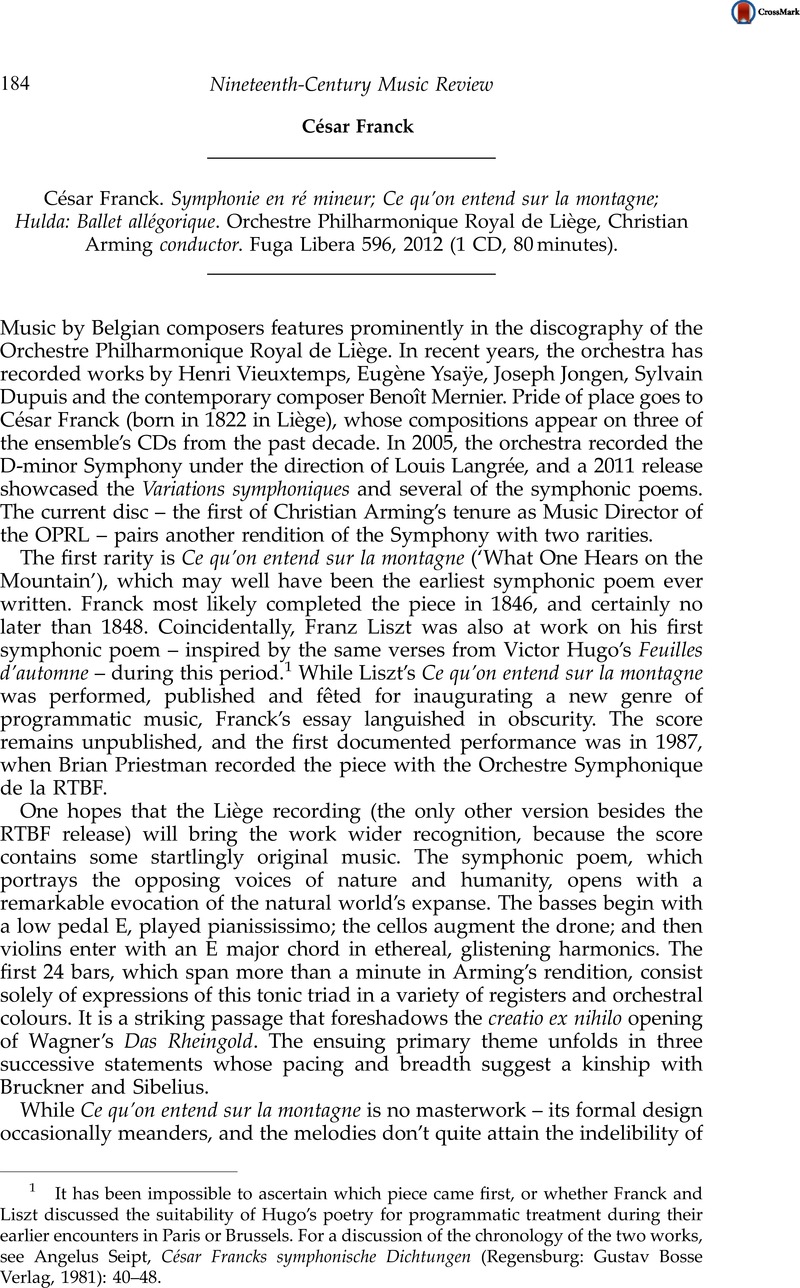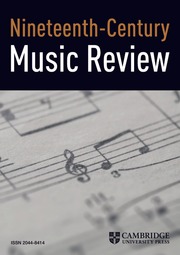No CrossRef data available.
Article contents
César Franck - César Franck. Symphonie en ré mineur; Ce qu'on entend sur la montagne; Hulda: Ballet allégorique. Orchestre Philharmonique Royal de Liège, Christian Arming conductor. Fuga Libera 596, 2012 (1 CD, 80 minutes).
Published online by Cambridge University Press: 12 March 2015
Abstract

- Type
- CD Reviews
- Information
- Copyright
- Copyright © Cambridge University Press 2015
References
1 It has been impossible to ascertain which piece came first, or whether Franck and Liszt discussed the suitability of Hugo's poetry for programmatic treatment during their earlier encounters in Paris or Brussels. For a discussion of the chronology of the two works, see Seipt, Angelus, César Francks symphonische Dichtungen (Regensburg: Gustav Bosse Verlag, 1981): pp. 40–48Google Scholar.
2 Jacobshagen, Arnold, ‘“Pièce absolument impossible”: César Francks Hulda’, in César Franck: Werk und Rezeption, ed. Peter Jost (Stuttgart: Franz Steiner Verlag, 2004): pp. 202–216Google Scholar, here 204.
3 Vallas, Léon, César Franck, trans. Hubert Foss (London: Harrap, 1951): p. 187Google Scholar; Davies, Laurence, Franck (London: J. M. Dent, 1973): p. 44Google Scholar; Charlton, David, ‘Revival or Survival?: Richard Coeur-de-Lion by André Ernest Modeste Grétry; Alfonso und Estrella by Franz Schubert; Hulda by César Franck’, 19th-Century Music 2/2 (1978): pp. 159–164CrossRefGoogle Scholar, here 163.
4 d'Indy, Vincent, César Franck, trans. Rosa Newmarch (London: The Bodley Head, 1909): p. 179Google Scholar.
5 For a discussion of Franck's reputation as an orchestrator, see Fabian Kolb, ‘Symphonik im “style d'orgue”? Zu César Francks Symphonie d-Moll und den Grundlagen, Problemen und Chancen eines rezeptionsäesthetischen Topos’, and Jost, Peter, ‘Zur Charakteristik von César Francks Instrumentation’, in César Franck im Kontext: Epoche, Werk und Wirkung, ed. Christiane Strucken-Paland and Ralph Paland (Köln: Verlag Christoph Dohr, 2009): pp. 61–99Google Scholar and 121–140.
6 Fauquet, Joël-Marie, César Franck ([Paris]: Fayard, 1999): p. 779Google Scholar.





